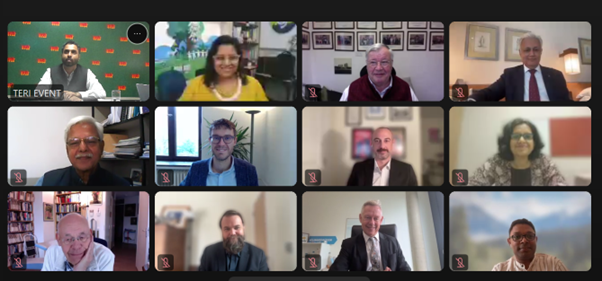Strengthening Multilateralism on the Road to COP30 and Beyond
The United Nations Framework Convention on Climate Change (UNFCCC) is the principal multilateral forum for global climate governance. Its annual Conference of the Parties (COP) brings together member states and stakeholders to negotiate and advance collective climate action. COP 30 will be held in Belém, Brazil, from 10 to 21 November 2025.
In 2024, global temperatures exceeded 1.5∘C for the first time, underscoring the shortfall in achieving the Paris Agreement’s goals. As the Agreement marks its tenth anniversary in 2025, the increasing frequency of floods, droughts, cyclones, and wildfires highlights the urgent need for stronger adaptation, as noted in the World Meteorological Organization’s 2025 report. The United Nations Environment Programme’s 2024 assessment further warns that current national pledges, even if fully realised, would still lead to a 2.6∘C to 2.8∘C rise by 2100, well above the Paris temperature targets. While the Agreement has helped bend the emissions curve, global progress remains insufficient.
This moment of urgency calls for renewed focus on the institutions governing international cooperation. Strengthening multilateral frameworks is critical to advancing both climate ambition and justice.
Against this backdrop, TERI is organizing the Act4Earth Virtual Dialogue to explore how multilateral frameworks can be reformed to deliver equitable, effective, and science-based outcomes on the road to COP30 and beyond.
The discussions will delve into the following questions:
1) Does the scope of the framework allow for the integration of emerging scientific evidence and evolving climate priorities that necessitate multi-scalar responses over time?
2) How effectively does the membership structure ensure inclusive representation of the diverse groups and regions most affected by climate change?
3) Do current decision-making processes generate outcomes that match the urgency, speed, and scale required to address the climate crisis?
4) Do the functions of multilateral processes provide credible and effective mechanisms for monitoring, compliance, and enforcement?
5) How adaptable is the institutional architecture in responding to planetary crises, shifting political contexts, and evolving stakeholder expectations?
Speakers include
- Mr R R Rashmi, Distinguished Fellow, TERI; India’s Former Lead Climate Negotiator (chair)
- Mr Ovais Sarmad, Former Deputy Executive Secretary, UNFCCC
- Mr Niclas Svenningsen, Manager for Global Climate Action, UNFCCC
- Prof Benito Müller, Managing Director, Oxford Climate Policy, Oxford
- Dr Bob Reinalda, Fellow, Political Science, Radboud University
- Mr Huw Davies, Managing Director, Centre for Multilateral Negotiations
- Mr Indrajit Bose, Senior Researcher, Third World Network
- Mr Ethan Spaner, International Policy Senior Advisor, The Climate Reality Project
- Dr Dhanasree Jayaram, Assistant Professor, Department of Geopolitics & International Relations, Manipal Academy of Higher Education
- Mr Tim Bosch, Research Fellow, Center for Climate and Foreign Policy, German Council on Foreign Relations
- Dr Shailly Kedia, Senior Fellow and Director, TERI

